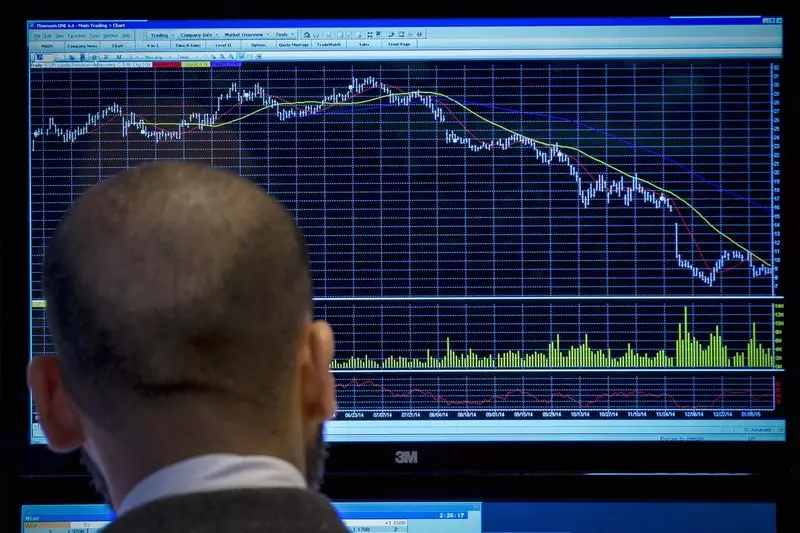In a striking turn of events, Bitcoin has surged to unprecedented heights, approaching the elusive $100,000 mark. This meteoric rise is particularly notable following the recent election results in the United States, which have sparked optimism around a more favorable regulatory stance for cryptocurrencies. The prevailing sentiment among investors is that the incoming Trump administration will provide a conducive environment for Bitcoin and other digital assets, potentially catalyzing a new chapter in the history of cryptocurrency.
Market Dynamics and Recent Trends
Bitcoin’s journey throughout the year has been nothing short of extraordinary, marking a staggering increase of over 130% in its value to date. The current momentum seems unrelenting, with Bitcoin recently reaching an all-time high above $99,800, before settling at approximately $99,383—a noteworthy rise of 1.33% for the day. This surge marks the cryptocurrency’s potential for a third consecutive week of gains exceeding 10%, as well as an impressive monthly performance reminiscent of its peaks in February. However, Bitcoin’s recent gains come amid a more measured trading landscape, as traders remain cautious yet optimistic about future advances.
The political climate post-election plays a pivotal role in shaping investor confidence. Trump’s administration has long been viewed as pro-cryptocurrency, with promises to position the United States as the global “crypto capital.” Investors are interpreting Trump’s rhetoric as a signal that regulatory hurdles may be diminished, particularly after the anticipated resignation of SEC Chair Gary Gensler. Gensler’s tenure has been marked by stringent actions against various cryptocurrency exchanges, which raised concerns about compliance with existing regulations. The expectation of a regulatory shift may eliminate some of the hurdles that have previously stifled market growth.
The Impact of Institutional Investment
A pivotal element in Bitcoin’s price ascent can be attributed to the increasing influx of institutional investments. The approval of Bitcoin exchange-traded funds (ETFs) in January has opened a floodgate for investments from hedge funds and other institutional players—allowing them to diversify their portfolios without facing the complexities of directly acquiring Bitcoin. Since the elections, Bitcoin-focused ETFs have attracted over $4 billion, a clear indication of growing institutional confidence and commitment to the cryptocurrency.
Moreover, companies like Microstrategy, which have heavily invested in Bitcoin and raised substantial funds for further acquisitions, exemplify how corporate entities are adjusting their strategies to embrace cryptocurrency as a legitimate investment option. After a 6.2% jump in share price, Microstrategy represents a broader trend of integration between traditional businesses and the cryptocurrency market.
While the current landscape appears optimistic, significant challenges remain. The potential for regulatory changes can create volatility; a sudden shift back to stringent regulations could deter investors. Furthermore, Bitcoin’s inherent volatility makes it difficult for traditional economists to assign a concrete value to the cryptocurrency, often labeling it as a speculative asset. Yet, the momentum and growing acceptance of Bitcoin among both retail and institutional investors can be viewed as indicators of its evolving stature in the financial ecosystem.
Bitcoin stands at a precipice of unprecedented opportunity, buoyed by favorable political winds and increasing institutional adoption. The dual forces of a potentially sympathetic regulatory framework and growing mainstream recognition suggest that the cryptocurrency may be on the verge of an extraordinary breakthrough. However, as Bitcoin’s trajectory remains uncertain, only time will reveal whether it can maintain its pace toward the $100,000 milestone and beyond. Investors must navigate this dynamic landscape carefully, weighing the excitement of opportunity against the realities of market volatility and regulatory scrutiny.

